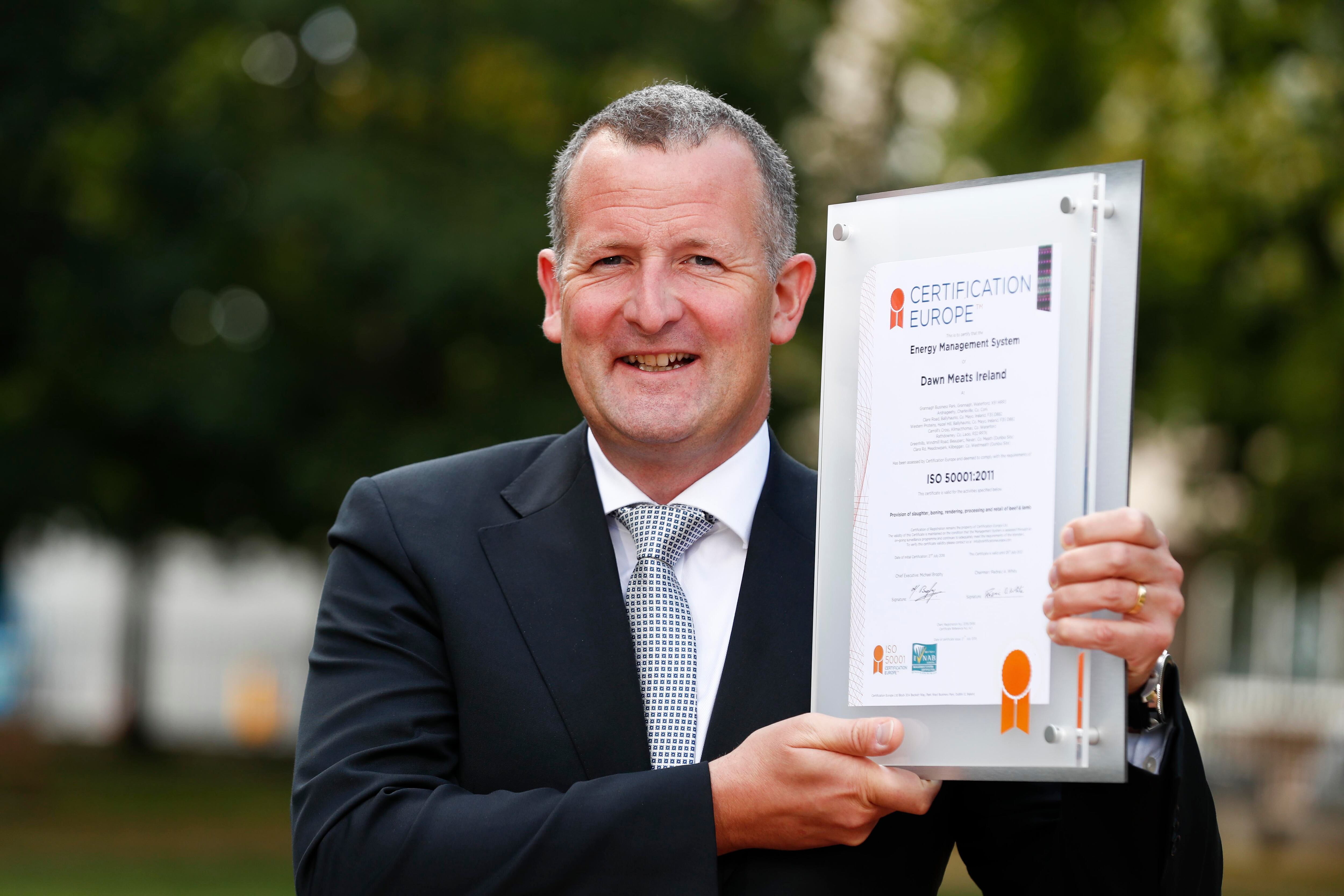Publishing its second group corporate social responsibility report, the company confirmed the significant progress on its eco-friendly programme by the end of 2018.
Key environmental achievements
- Water intensity cut by 23%;
- Energy intensity reduced by 18%;
- Greenhouse gas emissions cut by 33%;
- Zero waste to landfill achieved ahead of schedule across the group;
- 1,100t of plastic switched to recyclable mono materials in 2018;
- 430,000 megawatt hours (Mwh) of low carbon energy generated;
- 4.5m litres of fuel saved under the company’s Eco Drive initiative.
Dunbia and the wider Dawn Meats Group have also signed up to the Science Based Targets initiative (SBTi), a joint programme between the UN Global Compact, CDP, the World Resources Institute and WWF.
Addressing global warming
Under the SBTi, companies set emissions reduction targets in line with the level of decarbonisation required to meet the Paris Agreement commitment to limit global warming to an increase of 2°C above pre-industrial levels.
Dawn Meats is the first European beef and lamb processor to publicly commit to SBTi and measure its progress on externally verified sustainability goals.
Since the company’s first corporate social responsibility (CSR) report was published in 2017, Dawn Meats has doubled in size. Much of that growth has been driven by the strategic partnership and joint venture with Dunbia in the UK and the acquisition of the former Dunbia facilities in the Republic of Ireland.
Sustainability targets now apply across the entire group of over 7,000 staff, operating across locations in 12 countries.
European beef and lamb first
“We have now demonstrated our strong commitment to environmental best practice through committing to the Science Based Targets initiative – the first European beef and lamb processor to do so,” said Dawn Meats CEO Niall Browne.
“We are making excellent progress on our commitments to reductions in water and energy use, and CO2 [greenhouse gas] intensity, which positions us well to meet our 2025 targets. The next phase will indeed be more challenging, and I thank the whole Dunbia and Dawn team for our achievements to date, and reiterate our commitment to further improvement.”
Dunbia and Dawn Meats also said they had been working to reduce the environmental impact of packaging. Packs across the group were now 14% thinner than five years ago, while not adversely affecting the shelf life of products or causing increased food waste. In addition, packs could now be more easily recycled at home.
The group developed a first-to-market mono-polymer thermoform pack for mince, using only a single type of plastic called Mono APET, instead of multiple plastics around a single product. In 2018, 1,100t of plastic were changed to recyclable mono materials across the supply chain.
Greenhouse gas emissions
Since the launch of its Eco Drive initiative in late 2015, the group’s outsourced hauliers have achieved significant reductions in fuel consumption and associated greenhouse gas emissions. These savings had been achieved through an investment by hauliers in training and more efficient vehicles, saving 4.5m litres of fuel, according to Dunbia.
“We live in a world where consumers are increasingly concerned with the impact of the lifestyle choices they make,” said Browne. “As a responsible business, we are trusted by our customers and all our stakeholders to support the communities we supply and from which we source our most vital inputs.
“For Dawn Meats and Dunbia, the path to becoming Europe’s most sustainable meat company builds trust and loyalty in our brands, as well as making us a leaner, more efficient and resilient business.”
Aside from its environmental achievements, Dawn Meats and Dunbia outlined a number of other CSR achievements in the latest report.
Do you represent a food or drink manufacturer that is proud of its environmental credentials? Why not showcase them in our Food Manufacture Excellence Awards? Entry is free, but hurry as time is running out to apply. The closing deadline is 29 July.
Other CSR milestones
- 73,000 hours of in-house training completed in 2018;
- 100 participant milestone in the Young Manager Programme, designed and delivered with University College Dublin;
- apprenticeship schemes across butchery, electricians, engineering, fitters and refrigeration;
- Butchery Academy, with over 150 trainees currently enrolled;
- more than £400,000 and 1,600 volunteer hours donated to charitable causes and community groups during 2018;
- major progress in achieving greater gender balance throughout the group and, in 2018, 50% of new recruits to the Graduate Programme were female.

